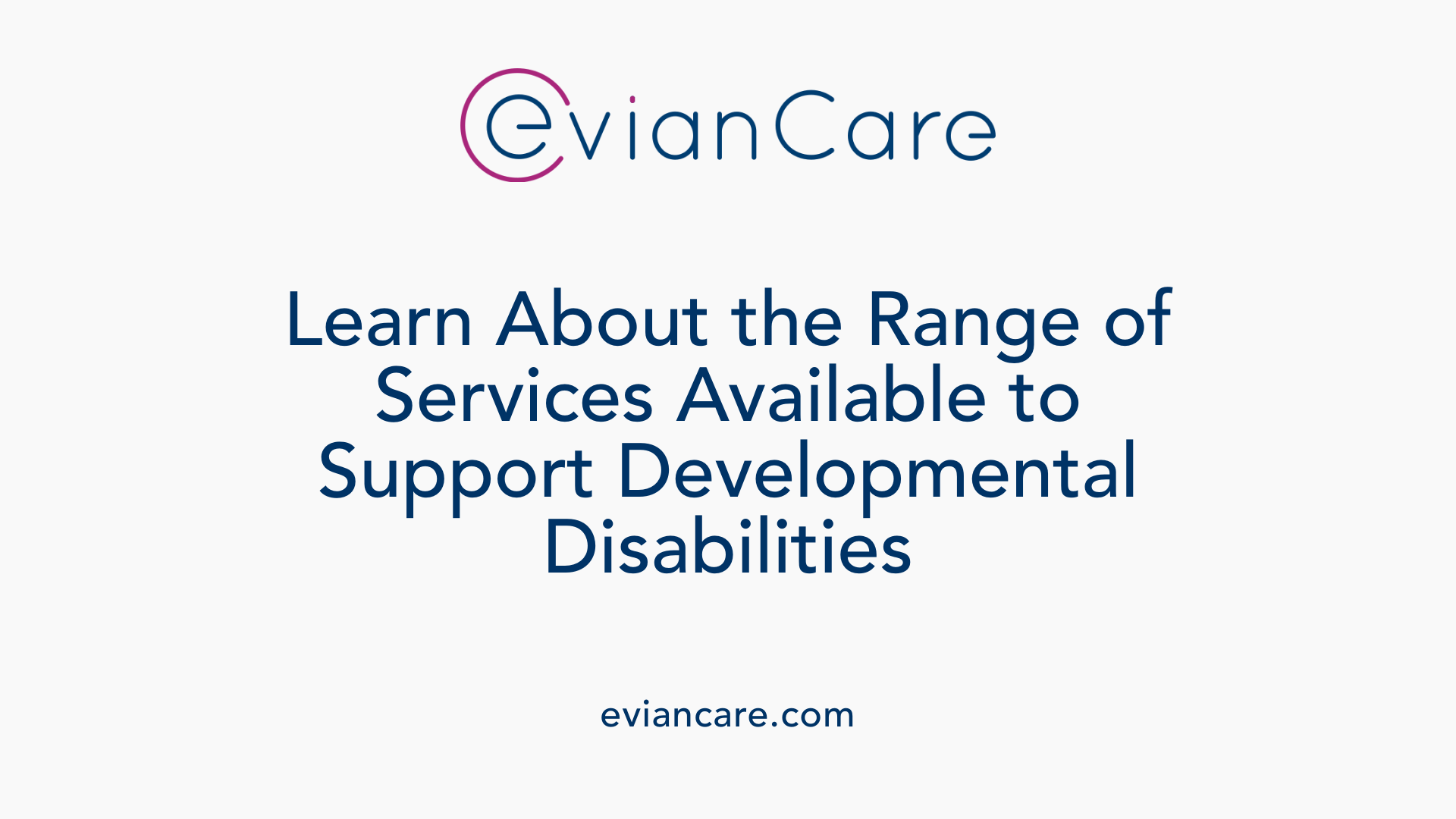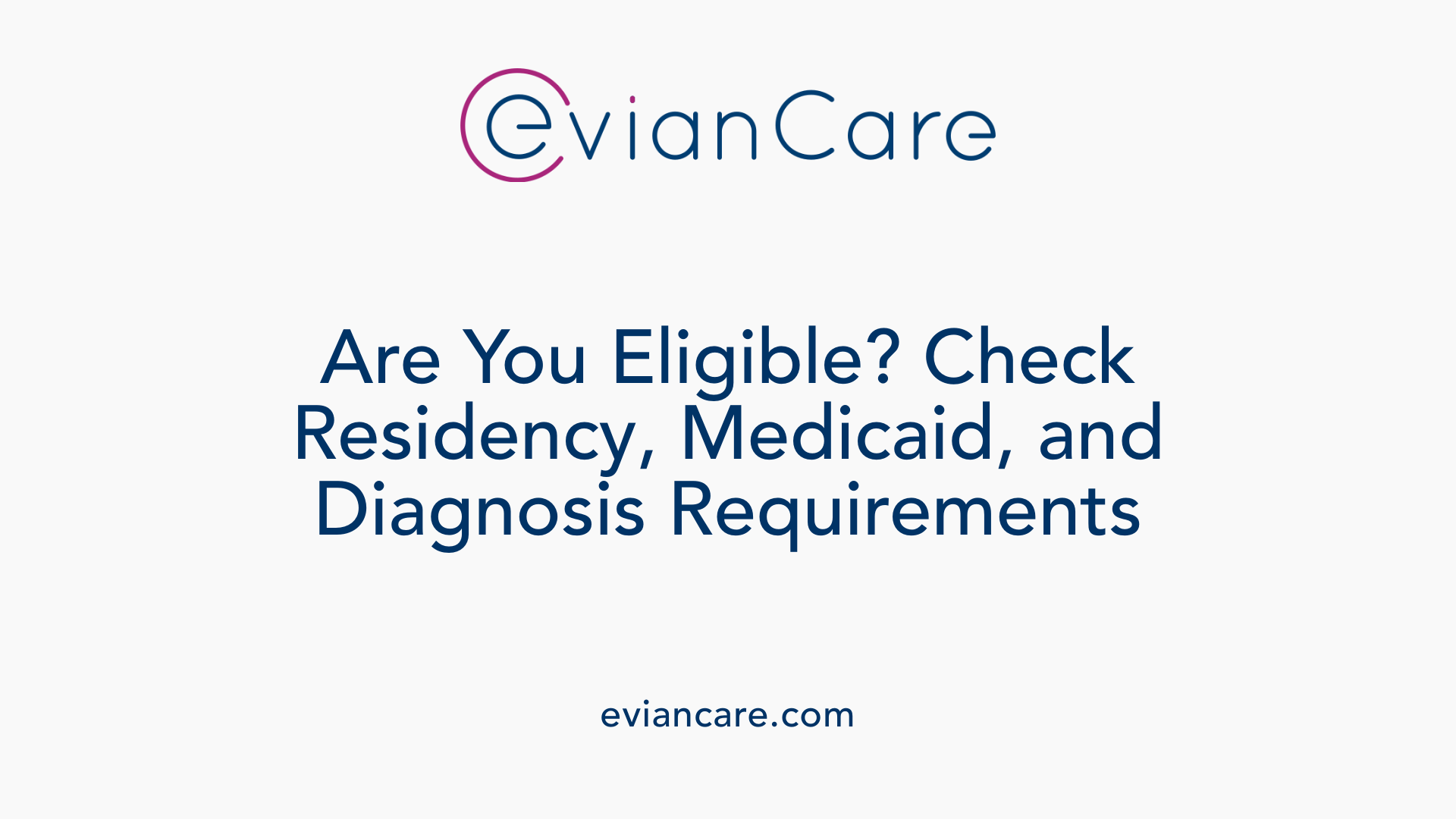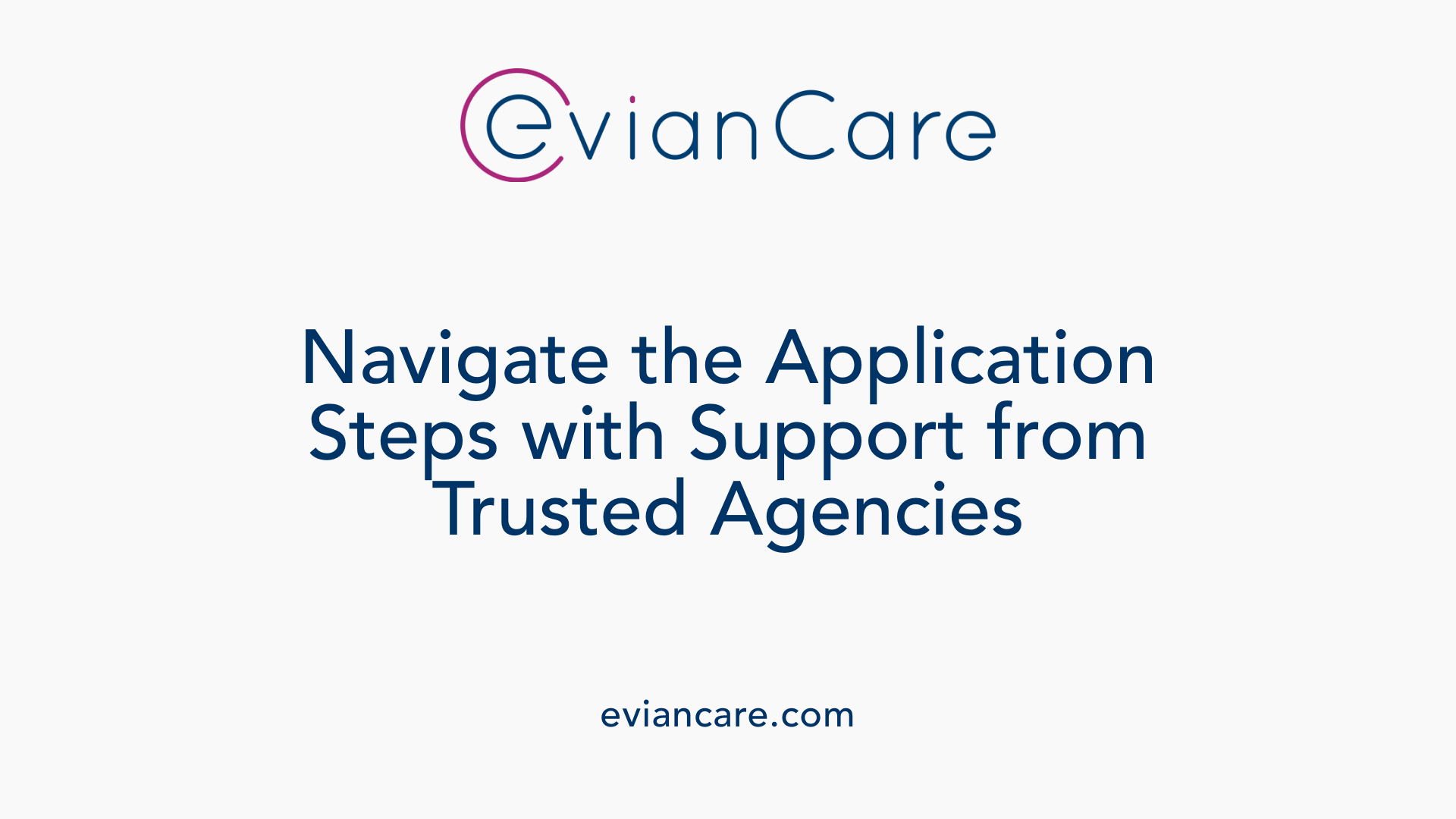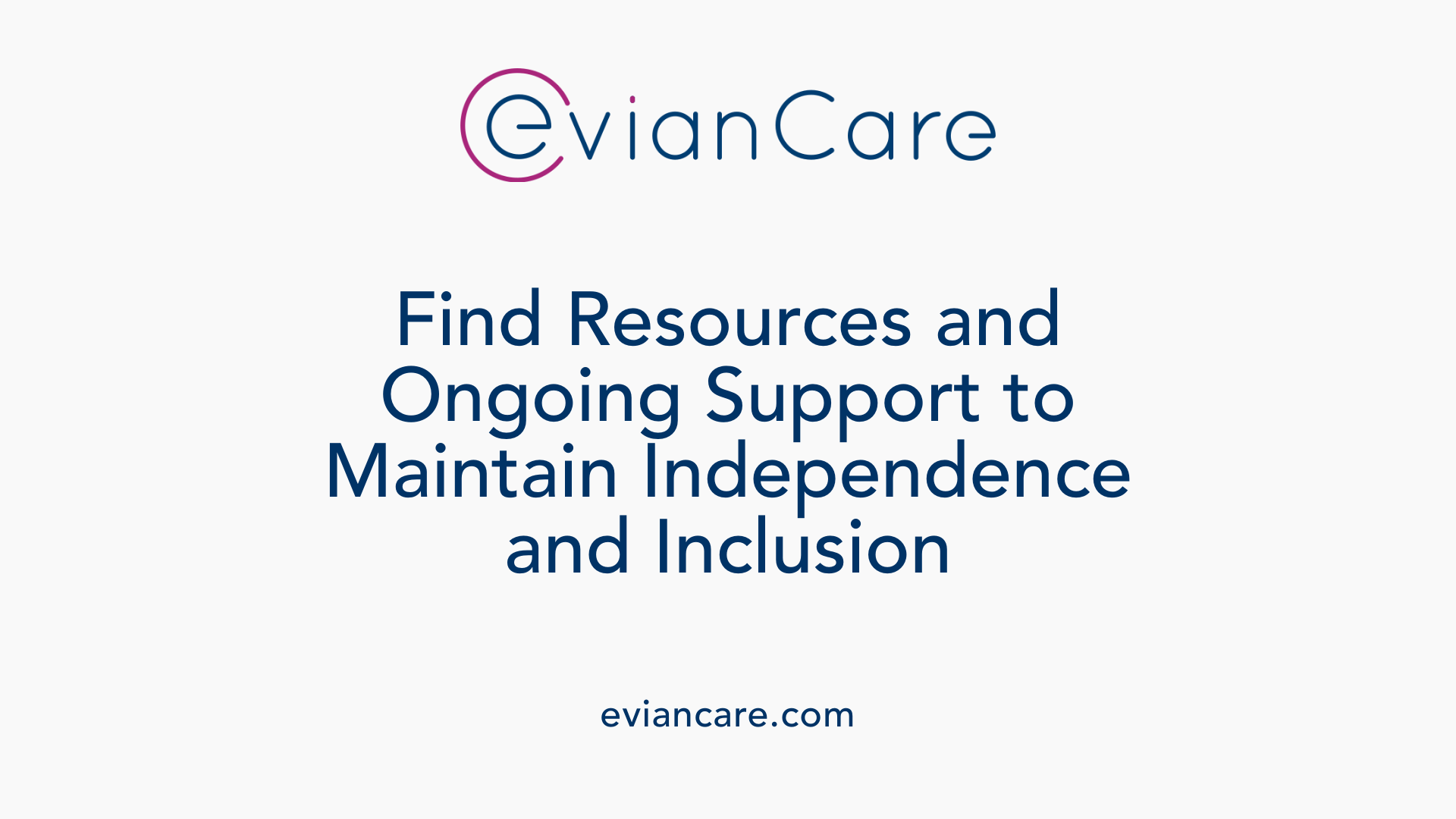
Understanding DDD Support and Its Impact
Applying for Developmental Disabilities (DDD) support is a vital step toward ensuring your loved one receives the essential services they need to lead a more independent and fulfilling life. This comprehensive guide covers everything from eligibility criteria to the application process, providing you with the resources and clarity required to navigate this important journey.
What is DDD Support and Its Benefits

What is DDD support and what benefits does it provide?
Developmental Disabilities support (DDD) services are dedicated programs designed to assist individuals with developmental disabilities in leading more independent and fulfilling lives. These services aim to help people develop essential social, vocational, and daily living skills, promoting their full participation in community life.
The range of services includes in-home support, respite care for families, transportation assistance, day programs, and employment services. These are tailored to meet each individual’s specific needs and outlined goals, ensuring personalized support that encourages independence.
Support is offered through a combination of approved vendors, natural supports from family and community, and public agencies. The emphasis is on efficient use of resources and supporting self-determination.
The overarching goal of DDD services aligns with the principles of the Developmental Disabilities Act. It advocates for the rights of individuals to choose where and how they live, gain employment, and participate in community activities.
Community integration and advocacy play crucial roles. These support efforts foster inclusion, promote systemic change, and empower individuals to advocate for their rights and needs.
Ultimately, DDD services aim to improve quality of life, foster independence, and encourage community participation, ensuring that individuals with developmental disabilities can enjoy meaningful and self-directed lives.
Eligibility Criteria for DDD Support

Residency and age requirements
To qualify for Developmental Disabilities (DDD) services in New Jersey, individuals must be residents of the state and over the age of 21, although applications can often begin at age 18. Domicile in New Jersey is verified through documents such as birth certificates, utility bills, or official state-issued IDs.
Medicaid eligibility
Applicants must be enrolled in or have eligibility for Medicaid. This is generally established through programs like SSI or by applying directly through NJ FamilyCare. Maintaining Medicaid is essential for continued DDD service access, as it is a prerequisite for funding and support.
Diagnosis and developmental delay criteria
Individuals seeking support need to have a diagnosed developmental disability that began before age 22 and is expected to be lifelong. The disability must cause significant functional limitations in at least three major activity areas—such as self-care, communication, learning, mobility, self-direction, and independent living. Diagnosis must be documented by qualified health professionals like physicians or developmental pediatricians.
Required documentation
Applicants must submit proof of residency, medical diagnoses, psychological assessments, and other supporting documents including legal records if necessary. An application for eligibility can be submitted in person, by mail, email, or through designated offices. The assessment process involves tools like the NJCAT, which evaluates support needs and determines the level of support required.
Special provisions for out-of-state applicants
New Jersey residents living outside the state may still qualify if they meet specific residency criteria and provide necessary documentation. These applicants might need to undergo additional steps, including coordination with the New Jersey DDD and possibly other state agencies, to establish eligibility.
How can someone determine their eligibility for DDD services?
To determine eligibility for DDD services, an individual must meet specific criteria, including residing in New Jersey and being Medicaid-eligible, with assistance available for Medicaid application. They must have a clinical diagnosis of a developmental disability that began before age 22 (or age 18 for some programs) and be expected to continue indefinitely. The disability must result in significant limitations in at least three areas of daily living, such as communication, mobility, or independent living, as assessed through standardized evaluations like the Ohio Eligibility Determination Instrument. For children, age-specific criteria apply, including eligibility through programs like Early Intervention or having an IEP, while adults need documentation of lifelong disability and functional limitations. Referrals for assessment can be made by individuals, families, or professionals, and evaluations are arranged by the designated agency to confirm diagnosis and functional impact.
Application Process and Support Services

What is the process for applying for DDD support?
Applying for Developmental Disabilities Department (DDD) services involves several crucial steps to ensure eligibility and access to support. Initially, individuals or their families should contact the DDD intake team—often through phone or email—to begin the process. They then complete and submit an Application for Eligibility, which can be done via multiple methods including online submission, mail, email, or fax.
Supporting documentation is an essential part of the application. Applicants need to provide recent medical evaluations, diagnosis reports, proof of residency, and other relevant legal documents. These materials help establish the existence of a developmental disability diagnosed before age 22 and its impact on daily functioning.
Once the application is received, the next step is an in-person assessment using the NJCAT—New Jersey Clinical Assessment Tool. This comprehensive, needs-based evaluation determines the level of support required and assigns a support tier with an associated annual budget.
The approval process may take up to 60 days, depending on the completeness of the application and the thoroughness of the assessments. During this period, the department reviews all submitted materials, including financial documentation like Medicaid eligibility, to determine final eligibility.
Upon approval, individuals are connected with a support coordination agency. This agency helps develop an Individualized Service Plan (ISP) that aligns services with personal goals, support needs, and preferences. The ISP guides access to various services like community-based instruction, employment supports, and health care, enabling individuals to live more independently.
Submitting documentation
Applicants must submit detailed medical and psychological evaluations that demonstrate the presence of a developmental disability diagnosed before age 22. Residency verification such as birth certificates, driver’s licenses, or utility bills is also required.
Legal documents like proof of U.S. citizenship or lawful presence are necessary, along with financial records to establish Medicaid eligibility, which is a prerequisite for receiving DDD support.
Use of agencies like Your Choice Home Care
Support services and application assistance are often facilitated through approved agencies such as Your Choice Home Care. These agencies play an active role in guiding families through the entire process—from initial screenings, fingerprinting, and training, to obtaining necessary certifications. They help complete paperwork, prepare for assessments, and ensure all documentation meets the program's standards.
By working with these agencies, families can experience a smoother and less stressful application process. Once onboarded, caregivers—whether family members or support staff—can be compensated for providing direct care and support, making the process not only accessible but also sustainable.
Assessment procedures like NJCAT
The NJCAT assessment is crucial for determining individual support needs. Conducted face-to-face by trained facilitators, it evaluates support needs across areas such as self-care, mobility, communication, learning, self-direction, and independent living.
Results from the assessment establish the support tier, which influences the available services and funding levels. The process helps tailor support plans closely aligned with each person's unique circumstances.
Timeline and approval process
After completing the application and assessment, the waiting period for final approval and placement can be up to 60 days. During this time, applicants are encouraged to stay in contact with support agencies and prepare necessary documents.
Once approved, families are notified by mail, and service planning begins. This structured yet flexible process aims to streamline eligibility determination, ensuring that individuals receive timely support that fosters independence and community integration.
Required Documentation and Assistance Resources
What documents and materials are needed to apply for DDD support?
Applying for Developmental Disabilities Division (DDD) services requires thorough documentation to verify eligibility. Individuals must complete the Application for Determination of Eligibility and submit supporting materials that confirm a developmental disability beginning before age 22, which is expected to be lifelong and substantially limits daily activities.
Key documents include medical records, psychological evaluations, and developmental reports prepared by qualified healthcare or educational professionals. These records must demonstrate the presence of a chronic disability, such as autism, Down syndrome, cerebral palsy, epilepsy, or other qualifying conditions.
Proof of residency in the state of New Jersey is also necessary; acceptable forms include birth certificates, NJ driver’s licenses, utility bills, or voter registration cards. Valid proof of identity, such as a Social Security card or birth certificate, must accompany the application.
For programs like the Supported Employment Program (SEP), applicants are required to fill out additional forms such as the Alternative Day Program Request (ADPR) and the Supported Employment Questionnaire (SEQ). If employment support is sought, evidence of prior closure from the Division of Rehabilitation Services Vocational Rehabilitation (DRS VR) within the last 90 days is often needed.
Applications can be submitted through various channels—by mail, in person, or email—depending on available local services. The review process can take up to 60 days, especially if all documentation is complete and correctly submitted.
Assistance from local agencies and advocacy groups
Navigating the application process can be complex. Fortunately, individuals can seek assistance from local agencies such as community services offices and non-profit advocacy groups. These organizations provide help in understanding requirements, preparing documents, and completing application forms.
Support agencies often offer guidance on accessing resources, legal guardianship, and guardianship arrangements if necessary. They can also assist in the development of an Individualized Service Plan (ISP) and advocate for the individual's needs during the eligibility assessment.
Legal considerations and guardianship
Legal arrangements, such as guardianship, play a vital role in managing applications and ongoing services for individuals with developmental disabilities. Guardianship may be necessary if the individual cannot manage legal or financial decisions independently.
Legal support organizations or elder law attorneys can advise on establishing guardianship or alternative decision-making arrangements, ensuring the rights and best interests of the individual are protected.
Further, understanding the legal landscape helps families and caregivers navigate appeals if applications are denied or if services need to be re-evaluated.
| Document Type | Purpose/Details | Notes |
|---|---|---|
| Application for Eligibility | Official form to initiate the process | Must be filled out completely |
| Medical and Developmental Reports | Confirm disabilities and diagnosis | Must be recent and from qualified professionals |
| Residency Proof | Prove NJ residency | Includes utility bills, birth certificates, etc. |
| Identification Documents | Verify identity and citizenship | SSN, driver’s license, state ID |
| Additional Forms for Employment Support | ADPR, SEQ, prior VR closure evidence | Required for employment-related services |
For more detailed guidance, families and individuals can search online using the query "Required documentation for DDD application and resources for assistance" to find local support agencies and detailed procedural instructions.
Accessing Resources and Ongoing Support

How can individuals find resources and assistance in applying for DDD support?
Individuals looking for help with the application process or ongoing services for developmental disabilities can start by reaching out to their local support agencies. In New Jersey, contact points such as the NJ Department of Human Services and regional DDD offices are vital resources. These agencies offer guidance, help with documentation, and support in navigating the application steps.
Families and individuals can also visit official state websites, where detailed application guides and eligibility criteria are available. For example, the NJ DDD website provides resources about the NJCAT assessment, service options, and how to choose a support coordination agency. Online access often includes forms, instructional PDFs, and contact information for in-person or virtual assistance.
Community-based organizations, advocacy groups, and healthcare providers also play a crucial role. They can offer personalized assistance, help gather required documentation, and advocate for applicants during the review process. Programs such as Early Steps for young children or crisis intervention services are dedicated to immediate support needs.
It’s beneficial to connect with local law firms or legal aid organizations specializing in disability rights. They can assist with understanding legal rights, appealing decisions, or re-establishing benefits if eligibility is lost.
Additional resources include programs like Medicaid or CHIP for healthcare coverage, the Supportive Housing programs, and financial assistance initiatives like the ABLE United savings program. These programs help sustain long-term independence and provide supplemental support. Making use of these extensive networks ensures individuals receive comprehensive assistance from initial application to ongoing support services.
More about Finding support agencies and legal resources for DDD
Searching online with queries like "Finding support agencies and legal resources for DDD" provides up-to-date information on local offices, legal advocates, and service providers. Staying connected through local community centers, disability councils, and social service offices can also facilitate ongoing support and timely updates on new programs or policy changes. Regularly checking these resources helps individuals and families remain informed and adequately supported throughout their journey.
Ensuring a Smooth Transition to Support Services
Navigating the application process for DDD support may seem complex, but with the right resources and guidance, families can successfully access the services their loved ones need. Starting early, gathering all necessary documentation, and working closely with authorized agencies and support coordinators will help ensure a smoother process. Remember, ongoing support doesn't end with approval—continued advocacy and resourcefulness are key to maintaining and expanding care options, enabling individuals with developmental disabilities to thrive within their communities.












